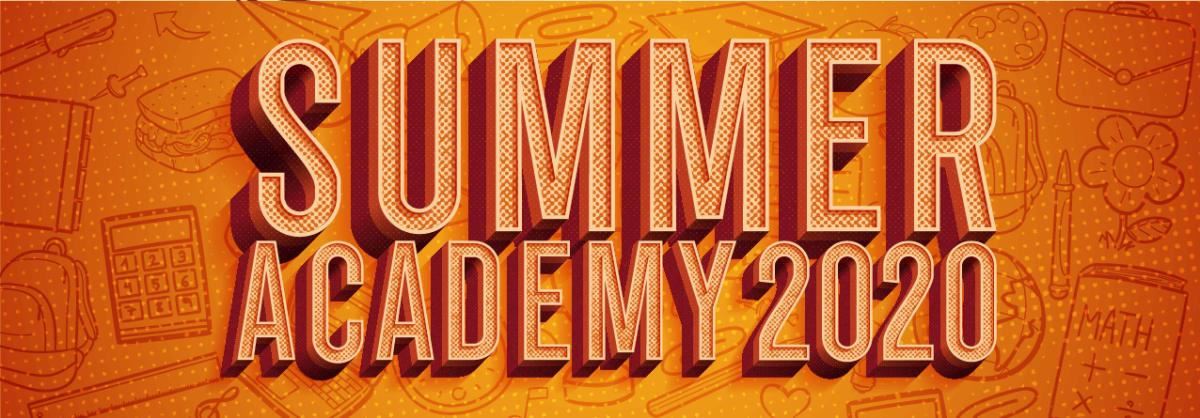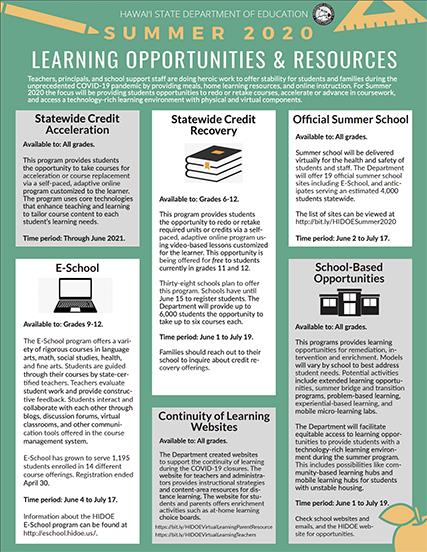- Council of the Great City Schools
- Urban Districts Gear Up for Virtual Summer School
Digital Urban Educator-May 2020
Page Navigation
- Big-City School Superintendents Call for Congress to Provide More Education Funding
- Districts Partner with Local TV Stations to Provide Educational Programming
- Urban Districts Gear Up for Virtual Summer School
- Educators Aim for Long-Term Solution to Internet Access
- New Superintendents Named in Atlanta and Rochester; Tenure Extended for Omaha and Oakland Leaders
- Former First Lady Laura Bush and Presidential Candidate Julian Castro to Speak at Fall Conference
- Extraordinary Employees
- Milwaukee Teacher Receives Twilight Award from Chance the Rapper
- Urban Schools Win Green Ribbon Awards
- Pinellas and Des Moines Win Energy Star Award
- Ballot Measure Passes in Anchorage
Urban Districts Gear Up for Summer School
-
The coronavirus forced urban school districts to shut their doors in March and keep them closed through the end of the academic year. In an effort to mitigate the learning loss students have experienced due to school closures, many districts are implementing summer programs for their students. However, to protect the safety, health and wellness of students and staff, these programs will be offered to students in a remote environment.
L.A. Offers Three Options
Los Angeles Unified School District, the nation’s second-largest school district, is planning a remote-learning summer school program that will give elementary and middle school students three options from which to choose.

The Community-Led Summer Program will focus on English, mathematics, and English Language Development, with weekly enrichment. The program is open to all students, but the priority is for students who need to combat learning loss and maintain grade-level performance in reading, math and language.
Another program, Start Strong -- Reading, Writing, Math, and Academic English Language Development!, is designed to help students prepare for the next grade in reading, writing, mathematics and English.
High school summer programs are open to all current 9th- through 12th- graders, and they offer students the opportunity to take elective or academic courses they have not previously taken or have failed.
In addition, the district will offer Integrated Themed Units of Study, through which teachers will provide enrichment instruction with community partners, similar to an online summer camp. Topics of study will include sports medicine with the Los Angeles Chargers professional football team, environmental science/STEAM (science, technology, engineering, arts and math) with a local science museum, and instruction in courses such as animation, coding and gaming.
Broward Makes Changes
The coronavirus pandemic led Florida’s Broward County Public Schools to make several changes to its summer programming.
The district will not physically host any activities in school buildings during the summer, and summer operations are limited to construction, maintenance, cleaning and preparation for opening in the fall. Required summer programs, including
Third Grade Reading Academy and Extended School Year, will be offered for eligible students using distance learning supported by extensive use of video chats.
Class sizes will be reduced, with fewer students per teacher, to maximize instructional support and personalization; and professional learning for staff, including the onboarding of new employees, will be conducted using distance learning.
The district is allowing students who have been given a computer to retain those computers for the summer until the start of the 2020-21 school year, when they will be collected and inventoried.
Virtual Summer Camps in Tulsa
Tulsa Public Schools will offer virtual summer programming for all students during June and July. Students will be able to participate in the district’s virtual Summer Academy, Senior Bootcamps, or summer camps; and the district will continue to provide at-home engagement and enrichment opportunities on its website at www.tulsaschools.org/summer.

“We know that students can lose up to 40 percent of their school year learning over the summer months,” said Tulsa Schools Superintendent Deborah Gist. “Given our current context and available resources, we are prioritizing summer learning for our most at-risk students while also ensuring that all children have access to high-quality at-home activities that keep them engaged during the break.”
The district’s Summer Academy will provide distance learning for third-grade students eligible under the Reading Sufficiency Act, as well as for students in grades 9-11 who need to recover credits to stay on track to graduate with their peers. Virtual Senior Bootcamp will be for high school seniors who need to complete graduation requirements. Starting in June, the district also will offer self-guided virtual learning camps for all students. Virtual camp sponsors include the Tulsa Regional STEM Alliance and the YMCA of Greater Tulsa.
In April, the school district distributed more than 21,000 laptops to students to support distance learning. To help students access these summer learning opportunities, the school system is allowing students who plan to return to the district in the fall to keep their laptops during the summer months.
Hawaii Offers Five Programs
The Hawaii State Department of Education 2020 summer learning comprises five main program areas: statewide credit recovery, statewide credit acceleration, official summer school, E-School, and school-based opportunities.
The credit-recovery program is being offered at no cost to families with students currently in grades 11 and 12. It will provide an opportunity for up to 6,000 students to take up to six courses each. The district also is offering virtual learning via 19 official summer school sites and anticipates serving an estimated 4,000 students.

“The focus of our programs over the next two months is targeted toward our high-need and hard to reach students, with added opportunities for credit advancement for our secondary students,” said Hawaii Schools Superintendent Christina Kishimoto. “We are also assessing where we can expand on system and school design models that allow for continued distance learning opportunities into the fall, including the permanent expansion of E-School programs and community-centric mobile learning labs.”
In early June, mobile learning labs that provide Wi-Fi access will be launched in four pilot locations to assist students who were not fully proficient at the end of the 2019-20 school year advance to their next grade level. Learning will focus on English Language Arts/reading, mathematics, social studies and science, and the labs will be located in four rural communities, where connectivity and access are a challenge.
The goal of this pilot is to transition from summer Mobile Learning Labs into permanent Micro Learning Hubs in the fall.
Miami Aims to SOAR
Even though approximately 90 percent of students in Miami-Dade County Public Schools have logged on for virtual learning, the district still is planning summer programming for those who have not yet participated.
The nation’s fourth-largest school system has created the Securing Opportunities for Academic Recovery (SOAR) plan, composed of three phases: Recover, Regain, and Restart. The Recover phase, conducted virtually, will extend the school year through July and will provide students with opportunities for summer reading, remediation, and credit/course recovery. Students with disabilities, students with an excessive number of absences, and students who did not actively participate in distance learning will be engaged during this phase.
The Regain phase will focus on current 9th-grade Algebra students and 10th-grade English Language Arts students who did not have the opportunity to take the state assessments required for graduation. The district will provide these students with virtual test preparation and tutoring to enable them to achieve proficiency on these tests in the fall, when the state will offer the tests again. In addition, all students will have access to the district’s E-Learning Toolbox and Academic Challenges via the student portals.
As part of the Restart phase, schools will open early, on July 27, specifically for low-performing students, students with disabilities, and English-language learners. Contingent on guidelines issued by federal and state public health authorities, identified students will receive intense instruction in the skills needed for the core academic areas of their new grade-level. The school system also is planning to expand the number of schools that participate in the extended school day program, and to begin Saturday School earlier in the year to maximize instructional time. If schools must remain closed during this phase, students will receive instruction virtually.
“SOAR attempts to turn this highly disruptive health crisis into an educational opportunity for students who have carried multi-year achievement and performance deficits,” said Miami Schools Superintendent Alberto Carvalho. “These students will be strategically identified and provided with significant and meaningful expanded learning opportunities during the summer and into the 2020-2021 school year.”
Media Contact:
Contact Name
Contact@email.com
(000) 000-0000
Contact Name
Contact@email.com
(000) 000-0000
Contact Name
Contact@email.com
(000) 000-0000
Media Contact:
Contact Name
Contact@email.com
(000) 000-0000
Contact Name
Contact@email.com
(000) 000-0000
Contact Name
Contact@email.com
(000) 000-0000


